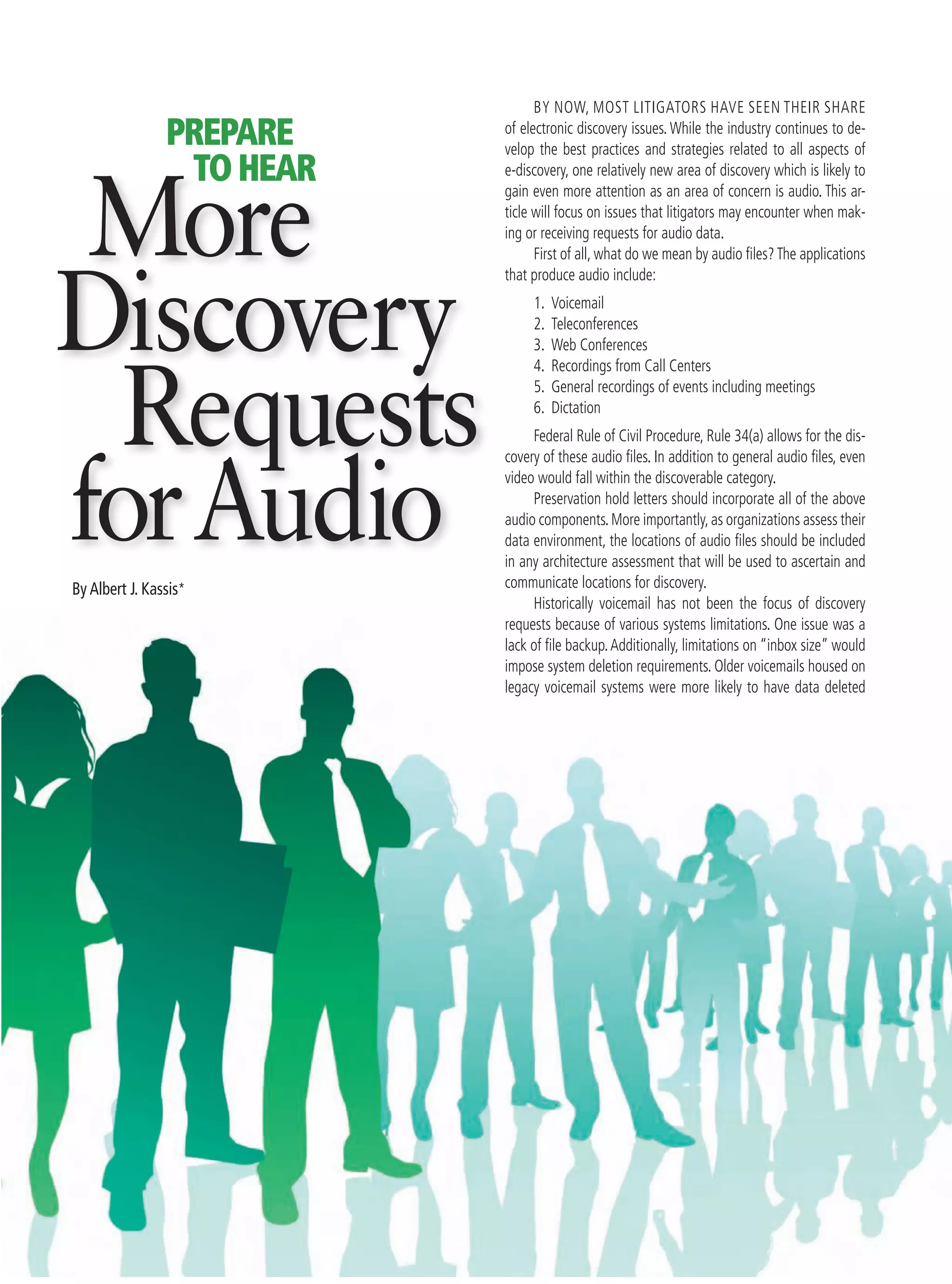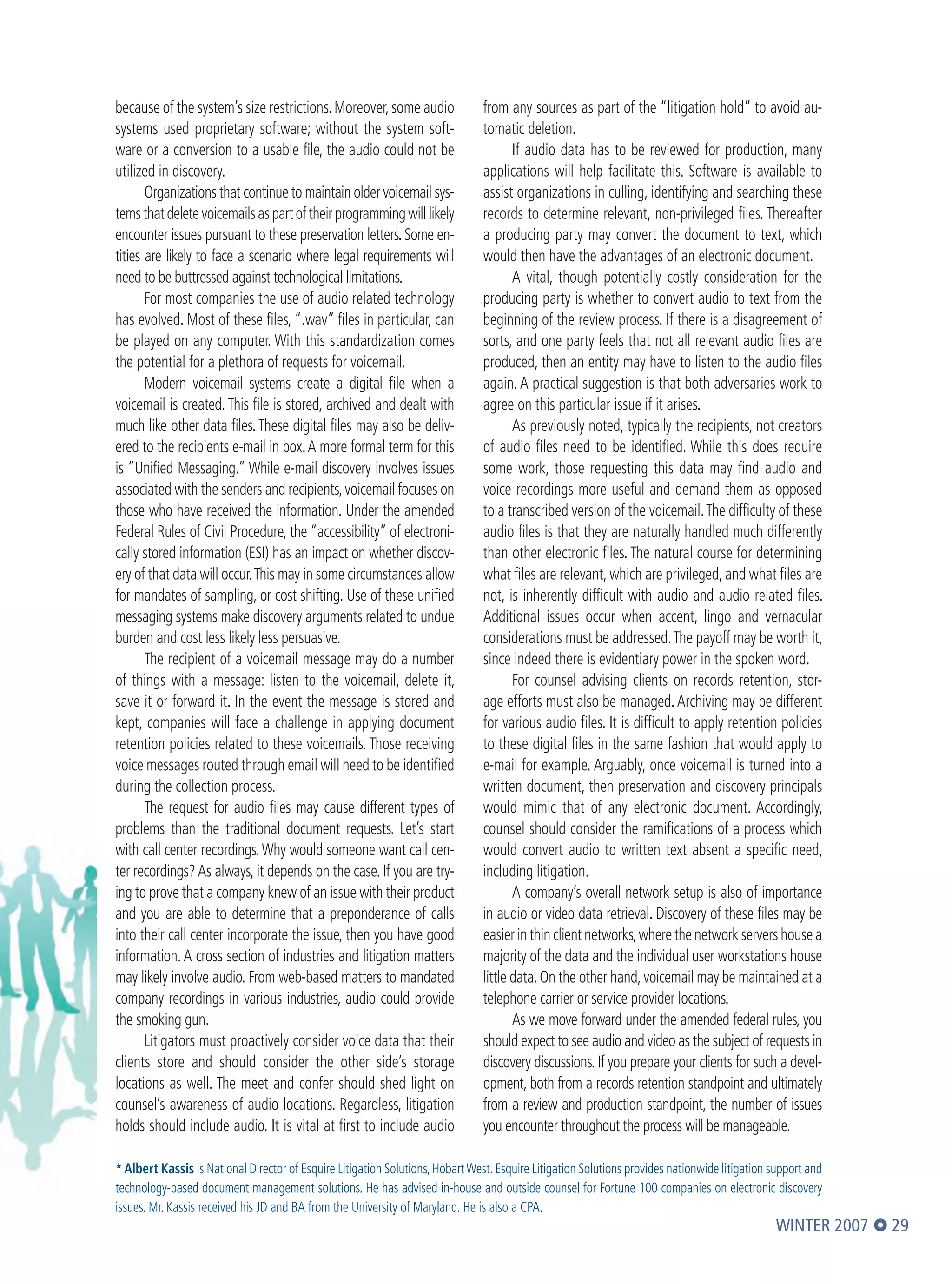This article discusses the increasing focus on audio files in electronic discovery requests. Audio files can include voicemails, teleconferences, web conferences, call center recordings, and general event recordings. Preservation hold letters should include all potential sources of audio files. While older voicemail systems had limitations that could result in automatic deletion, modern systems create digital files that are accessible like other electronically stored information. Litigators should consider including audio sources in litigation holds to avoid accidental deletion and be prepared for requests involving audio discovery.

